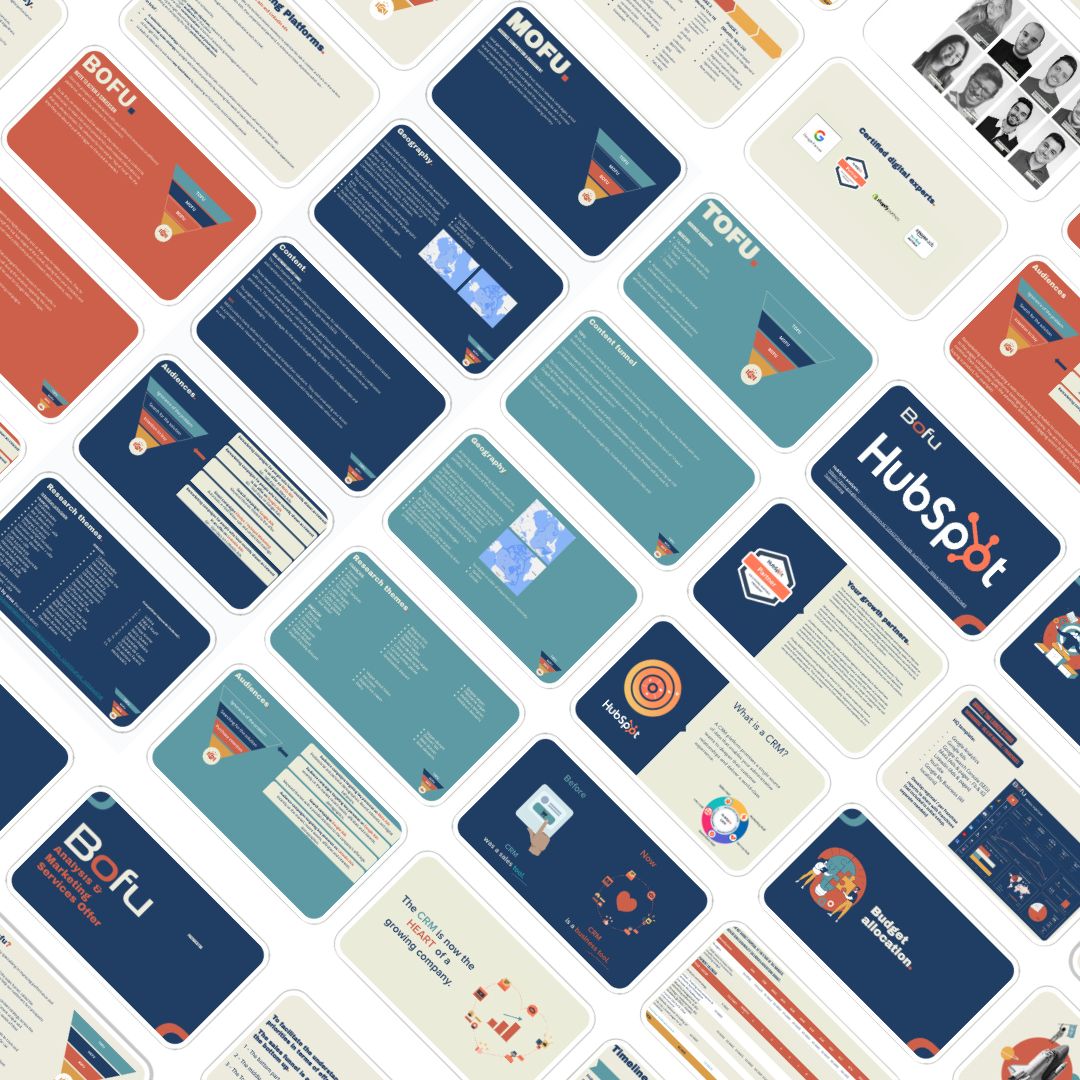Alors que les entreprises s'appuient de plus en plus sur la technologie et Internet pour se connecter avec leurs clients et vendre leurs produits et services, il est plus important que jamais d'avoir une solide stratégie de marketing B2B. Mais qu'est-ce que le marketing B2B exactement et pourquoi est-il si important ?
Le marketing B2B, ou marketing interentreprises, fait référence à la commercialisation de produits et de services auprès d'autres entreprises. Cela contraste avec le marketing grand public, qui se concentre sur la vente de produits et de services aux consommateurs individuels. Le marketing B2B est un aspect essentiel de nombreuses industries, car les entreprises dépendent souvent d'autres entreprises pour les produits et services dont elles ont besoin pour fonctionner.
L'un des principaux avantages du marketing B2B est la possibilité d'établir des relations à long terme avec d'autres entreprises. Ces relations peuvent être extrêmement précieuses, car elles peuvent conduire à des activités commerciales répétées et à un flux de revenus constant. De plus, le marketing B2B permet aux entreprises de cibler des industries et des niches spécifiques, ce qui peut être plus efficace que d'essayer de faire appel à un large marché de consommateurs.
Définir votre public cible
La première étape de toute campagne de marketing B2B efficace consiste à définir votre public cible. Cela signifie identifier les entreprises ou les individus spécifiques qui sont les plus susceptibles d'acheter chez vous. Pour ce faire, vous devrez tenir compte de facteurs tels que :
Secteur d'activité : dans quels secteurs d'activité travaillent vos clients idéaux ? Sont-ils dans la fabrication, la technologie, les soins de santé ou autre chose ? Comprendre le secteur d'activité de vos clients peut vous aider à adapter vos efforts de messagerie et de marketing à leurs besoins et défis spécifiques.
Taille de l'entreprise : vendez-vous principalement aux grandes entreprises, aux petites et moyennes entreprises, ou aux deux ? Différentes tailles d'entreprise peuvent nécessiter différentes approches du marketing et des ventes, il est donc important de comprendre la taille de votre public cible.
Intitulés de poste et rôles : qui prend les décisions d'achat dans les entreprises que vous ciblez ? Comprendre les intitulés de poste et les rôles des personnes auprès desquelles vous faites du marketing peut vous aider à adapter vos efforts de messagerie et de marketing à leurs besoins et responsabilités spécifiques.
Création d'un plan marketing
Une fois que vous avez défini votre public cible, l'étape suivante consiste à créer un plan marketing. Ce plan doit décrire les tactiques spécifiques que vous utiliserez pour atteindre et engager votre public cible, ainsi que les ressources (temps, budget, etc.) que vous allouerez à chaque tactique.
Mesurer le succès et s'améliorer continuellement
Lorsque vous mettez en œuvre vos tactiques de marketing B2B, il est important de suivre et de mesurer vos résultats pour comprendre ce qui fonctionne et ce qui ne fonctionne pas. Cela vous permettra d'améliorer et d'optimiser continuellement vos efforts pour un impact maximum.
Pour améliorer l'efficacité de cet entonnoir marketing, vous pouvez suivre des mesures telles que :
Trafic du site Web : combien de visiteurs visitent votre site Web et d'où viennent-ils ?
Génération de leads : combien de leads générez-vous grâce à vos efforts marketing ?
Taux de conversion : quel pourcentage de prospects se convertissent en clients ?
En analysant ces mesures et en ajustant vos efforts de marketing, vous pouvez optimiser chaque étape de l'entonnoir pour générer des prospects plus qualifiés et, en fin de compte, augmenter les conversions.
Certainement! Mesurer et améliorer continuellement vos efforts de marketing B2B est crucial pour le succès de votre campagne. En suivant les mesures clés et en analysant les résultats de vos efforts, vous pouvez obtenir des informations précieuses sur ce qui fonctionne et ce qui ne fonctionne pas, et faire des ajustements en conséquence.
Voici quelques conseils pour mesurer et améliorer vos efforts de marketing B2B
Identifiez vos objectifs : que souhaitez-vous accomplir avec vos efforts de marketing ? Voulez-vous augmenter le trafic sur votre site Web, générer des prospects ou générer des ventes ? Définir clairement vos objectifs vous aidera à déterminer les mesures à suivre et comment mesurer le succès.
Utilisez des outils de suivi et d'analyse : il existe une variété d'outils disponibles pour vous aider à suivre et analyser vos efforts de marketing, tels que Google Analytics, HubSpot et Microsoft Clarity. Ces outils peuvent fournir des informations précieuses sur des éléments tels que le trafic sur le site Web, la génération de prospect, leurs comportements sur vos ressources et les taux de conversion.
Suivez les bonnes métriques : différents objectifs nécessitent le suivi de différentes métriques. Par exemple, si votre objectif est d'augmenter le trafic sur le site Web, vous pouvez suivre des mesures telles que les pages vues, les sessions et le taux de rebond. Si votre objectif est de générer des prospects, vous pouvez suivre des mesures telles que les soumissions de formulaires et les inscriptions à la newsletter.
Analyser et optimiser : une fois que vous avez suivi vos métriques pendant un certain temps, il est important d'analyser les données et d'identifier les domaines à améliorer. Cela peut impliquer d'ajuster votre ciblage, d'affiner votre message ou de tester différentes tactiques.
Testez et expérimentez en permanence : le marketing est un domaine en constante évolution, et ce qui fonctionne un mois peut ne pas fonctionner le lendemain. Pour garder une longueur d'avance, il est important de tester et d'expérimenter en permanence de nouvelles tactiques et approches. Cela pourrait impliquer de tester A/B différentes lignes d'objet d'e-mail, d'essayer de nouvelles plateformes de médias sociaux ou d'expérimenter différentes stratégies de ciblage publicitaire.
Mais comment les entreprises peuvent-elles s'engager efficacement dans le marketing B2B à l'ère moderne ? Voici quelques stratégies clés à considérer :
Référencement organique (SEO)
Le référencement, ou optimisation des moteurs de recherche, consiste à optimiser un site Web pour qu'il soit mieux classé dans les pages de résultats des moteurs de recherche (SERP). Cela peut être réalisé grâce à une variété de tactiques, y compris la recherche et l'optimisation des mots clés, l'optimisation sur la page et la création de liens. En se classant plus haut dans les SERP, les entreprises peuvent augmenter la visibilité de leur site Web et générer un trafic plus qualifié vers leur site.
Les publicités
La publicité payante, telle que Google Ads ou les publicités sur les réseaux sociaux (surtout LinkedIn dans le cas d’acquisition B2B), peut être un moyen efficace d'atteindre des publics cibles spécifiques et de générer du trafic vers un site Web. En créant des publicités ciblées et en utilisant des mots clés pertinents, les entreprises peuvent atteindre efficacement des clients potentiels et générer des conversions
Marketing de contenu
Le marketing de contenu est la création et la distribution de contenu précieux, pertinent et cohérent pour attirer et fidéliser un public clairement défini. Cela peut inclure des articles de blog, des livres blancs, des infographies, podcasts, vidéos explicatives, etc. En fournissant un contenu précieux et informatif, les entreprises peuvent s'imposer comme des leaders d'opinion dans leur secteur et établir la confiance avec des clients potentiels.
Marketing des médias sociaux (organique)
Les plateformes de médias sociaux comme LinkedIn, Twitter et Facebook peuvent être des outils puissants pour le marketing B2B. En créant une forte présence sur les réseaux sociaux et en publiant régulièrement du contenu attrayant, les entreprises peuvent se connecter avec d'autres entreprises et professionnels de l'industrie, et générer des prospects et des ventes.
Publicité par e-mail
Le marketing par e-mail peut être un moyen efficace d'atteindre d'autres entreprises et de développer des prospects. En créant une liste de diffusion ciblée et en envoyant des messages personnalisés et pertinents, les entreprises peuvent rester en tête des clients potentiels et générer des conversions.
Marketing ‘’Inbound’’
Le marketing entrant est une approche holistique pour attirer, engager et ravir les clients grâce à un contenu et des interactions ciblés. Cela peut inclure le référencement, les blogs, les médias sociaux, etc. En créant une expérience client transparente et précieuse, les entreprises peuvent attirer des prospects qualifiés et les convertir en clients.
Événements, webinaires et salons professionnels
La participation à des événements et à des salons professionnels peut être un moyen efficace pour les entreprises de se connecter avec d'autres entreprises et professionnels de l'industrie. En exposant des produits ou des services et en réseautant avec des clients potentiels, les entreprises peuvent générer des prospects et des ventes. Notez que le webinaire entre aussi dans cette catégorie étant une version numérique d’un salon ou événement.
Partenariats et collaborations
Le partenariat avec d'autres entreprises ou la collaboration sur des projets peut être un excellent moyen d'atteindre de nouveaux clients et d'étendre la portée de votre marque. En s'alignant sur des entreprises complémentaires, les entreprises peuvent accéder à de nouveaux marchés et développer leur clientèle.
Documentation imprimée ou numérique
Documentation imprimée, telle que brochures, dépliants, catalogues, fiches techniques, outils de comparaison, etc.
Découvrez comment optimiser votre marketing B2B avec notre solution intégrée. Pour des leads de qualité et un cycle de vente accéléré, visitez notre page dédiée aux solutions marketing pour les entreprises B2B.
Conclusion
En conclusion, le marketing B2B est un aspect essentiel de nombreuses industries et peut aider les entreprises à établir des relations à long terme, à cibler des industries et des niches spécifiques et à générer des prospects et des ventes.
En tant que spécialiste du marketing inter-entreprises (B2B), vous comprenez les défis et les opportunités uniques du marketing auprès d'autres entreprises. De l'identification et du ciblage des principaux décideurs à l'élaboration de messages convaincants qui répondent aux besoins des entreprises, le marketing B2B nécessite un ensemble spécifique de compétences et de stratégies.
En mettant en œuvre des stratégies telles que le marketing de contenu, le marketing des médias sociaux, le marketing par e-mail, le marketing entrant, les événements et les salons professionnels, ainsi que les partenariats et les collaborations, les entreprises peuvent s'engager efficacement dans le marketing B2B à l'ère moderne.
Prêt à transformer votre entreprise avec une stratégie marketing efficace ? Découvrez notre article intitulé accélérer et structurer votre écosystème d’acquisition et d’activation client.
PARTENAIRES HUBSPOT ACCRÉDITÉS : AGENCE PARTENAIRE HUBSPOT
La réussite de votre entreprise ne doit pas être laissée au hasard. En tant qu'agence partenaire HubSpot accréditée, nous sommes spécialisés dans la mise en place de stratégies précises et ciblées pour favoriser la croissance de votre entreprise. Notre objectif ? Accélérer votre développement, tout en garantissant un retour sur investissement à la fois rapide et tangible.
Nos domaines d'expertise couvrent le CRM, la dynamisation des ventes avec Sales Hub, des stratégies de marketing digital via Marketing Hub, l'amélioration des services client avec Service Hub, la centralisation opérationnelle, l'automatisation, et l'intégration d'outils pour une synergie optimale.
Pour en savoir plus sur notre collaboration avec HubSpot et découvrir la preuve de notre expertise, cliquez ici pour voir notre fiche partenaire officielle dans le registraire de HUBSPOT ainsi que nos certifications.
















